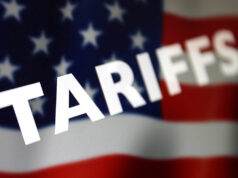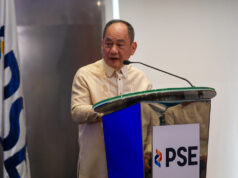Lockdown brings P7-B monthly losses to local airlines — ACAP
By Arjay L. Balinbin, Reporter
AIRLINES in the Philippines suffer losses of P7 billion per month of lockdown apart from their accumulated losses of around P4 billion from travel refunds because of the coronavirus disease 2019 (COVID-19) crisis, the Air Carriers Association of the Philippines, Inc. (ACAP) said.
“If you aggregate the amounts for the members of ACAP, if you look at the average, the fixed cost that they incur, in other words this is the cost that they have to pay even if they are not flying, is around P7 billion a month,” ACAP Executive Director and Vice-Chairman Roberto Lim told BusinessWorld in a phone interview on Monday.
ACAP is composed of Philippine Airlines, Inc. (PAL), Cebu Air, Inc. (Cebu Pacific), Philippines AirAsia, Inc., Air Philippines Corp. (PAL Express), and Cebgo, Inc.
“If you are not flying and there’s a fixed cost of P7 billion, you are paying that amount without any revenue so you have to get it somewhere. You have to get it from your reserves or you have to borrow money to pay that. So you consider that losses,” he explained.
As for passenger revenue losses due to the COVID-19 crisis, he said: “Siguro mga P4 billion na, kasi noong February mga P2.7 billion and the refunds keep on coming.” (Perhaps, the amount has reached P4 billion because in February our estimate was P2.7 billion and refund requests keep on coming.)
For an airline to reduce its fixed costs, he said it should try to secure waivers for taxes and other fees.
“Syempre (Of course) you try to preserve your workforce, so that’s why most of them have paid their workforce… But we can only do so much in reducing fixed costs,” he explained.
In its recent estimates, the International Air Transport Association (IATA) said local airlines in the Philippines will see their passenger revenues drop by $4.481 billion this year as it expects passenger demand to decline by 47%.
IATA said its estimates are based on a scenario of severe travel restrictions lasting for three months, with a gradual lifting of restrictions in domestic markets, followed by regional and intercontinental.
Mr. Lim said: “It will be more if the travel demand does not come back.”
Conrad Clifford, IATA’s regional vice president for Asia Pacific, identified the Philippines as among the priority countries in the region that need to take action.
IATA said the government needs to provide airlines with direct financial support; loans, loan guarantees and support for the corporate bond market; and tax relief.
ACAP member-airlines recently appealed for government help, as the “catastrophic impact” of the COVID-19 pandemic threatens their survival. Mr. Lim said the group has yet to receive a reply from the government.
ACAP asked the government to provide a credit guarantee scheme “that guarantees the banking sector’s loans and credit lines, most of which are secured with collateral, to remove its aversion to the poor credit risk of the airline industry under the present operating environment.”
The group also requested the government to give them access to emergency lines of credit to fund six months of operations of airlines and other aviation-related companies, “in order for the industry to remain viable until overall demand recovers.”
ACAP said airlines need a “long-term facility with attractive rates or a guarantee facility to allow them to restructure their debt at manageable levels, and secure better terms from aircraft lessors, bankers and creditors.”
Lastly, the local airlines also sought a full waiver of all navigational and airport charges, which include airport office rentals and land leases, until the end of 2020.



